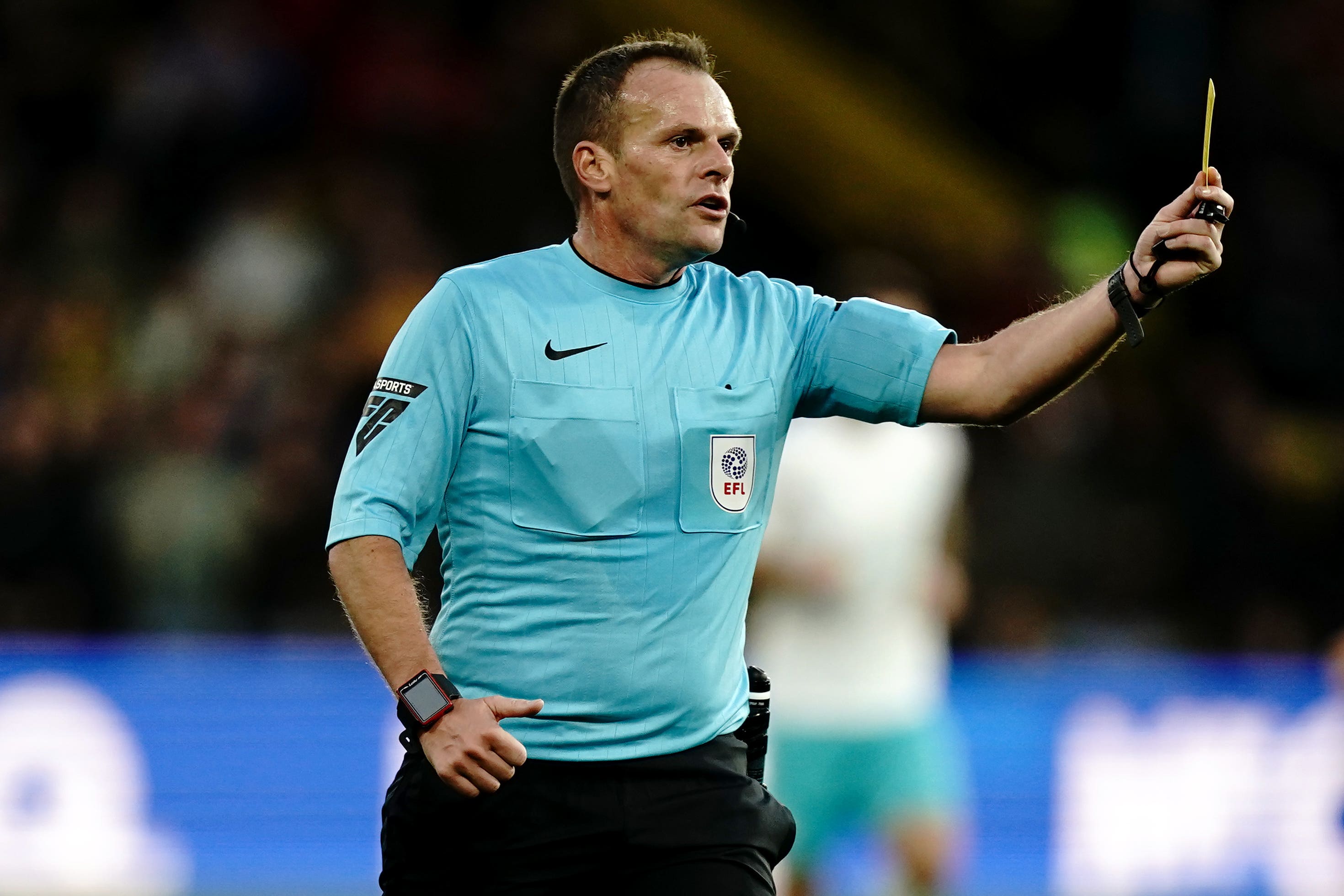Sin-bins and blue cards – what do we know?
The International Football Association Board (IFAB) is set to publish protocols on Friday in an effort to improve participant behaviour.

Your support helps us to tell the story
From reproductive rights to climate change to Big Tech, The Independent is on the ground when the story is developing. Whether it's investigating the financials of Elon Musk's pro-Trump PAC or producing our latest documentary, 'The A Word', which shines a light on the American women fighting for reproductive rights, we know how important it is to parse out the facts from the messaging.
At such a critical moment in US history, we need reporters on the ground. Your donation allows us to keep sending journalists to speak to both sides of the story.
The Independent is trusted by Americans across the entire political spectrum. And unlike many other quality news outlets, we choose not to lock Americans out of our reporting and analysis with paywalls. We believe quality journalism should be available to everyone, paid for by those who can afford it.
Your support makes all the difference.Football’s lawmakers are set to unveil how trials for sin-bins and other measures to improve player behaviour will work later on Friday.
Here the PA news agency takes a closer look.
What is happening?
The International Football Association Board (IFAB) is set to publish protocols later on Friday in an effort to improve participant behaviour, including trials for a sin-bin. Sin-bins have been trialled successfully at grassroots level and are now set to be tested higher up the chain.
However, during the initial trial phase, top-level competitions will not be involved. This is to avoid confusion among players – for instance if their domestic league ran a trial but a continental competition they were involved in at the same time did not. It is not precisely clear what level the new protocols will be stress-tested at initially.
What’s this about blue cards?
PA understands referees will use blue cards to indicate a player must go to the sin-bin. Sin-bins will be used for two specific offences – dissent and tactical fouls, such as Giorgio Chiellini’s tug on Bukayo Saka in the Euro 2020 final. Players will be ordered to go to the technical area for 10 minutes. If a player has already been booked, a blue card will mean they are sent off. Two blue cards will also result in dismissal.
The introduction of sin-bins and blue cards, should it reach the top level, would be one of the biggest developments in discipline in the game’s history, following on from the introduction of red and yellow cards at the 1970 World Cup in Mexico.
What other measures are the IFAB looking at?
As well as sin-bins, competitions will have the option to trial ‘captain only zones’. These are to be used by referees when they feel threatened or intimidated and mean that once the zone has been created, only team captains should enter. A further trial is understood to centre on ‘cooling-off’ periods, where a referee sends teams to their penalty areas to calm down after a mass confrontation, for example.
Another trial will look at a new approach to how long goalkeepers can handle the ball, and how play should restart when they hold on too long. Currently goalkeepers can hold on for six seconds and anything over that is supposed to be penalised with an indirect free-kick, but lawmakers are concerned this is not being properly enforced.